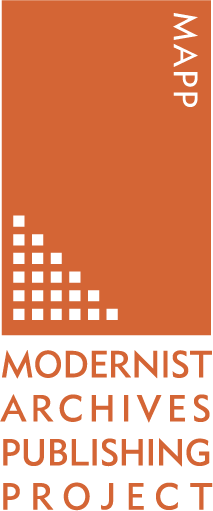With an autumn chill in the air, the pace of the fall semester quickens. Now in the midst of the heightened daily commitments of a teaching-intensive semester, I’m reflecting back on the work of the summer term. Many of the MAPP team members have involved students in our research project. While the majority of these were graduate students, we have also been experimenting with involving undergraduate researchers. This past summer I had the pleasure of working with six undergraduate research assistants at King’s University here in Edmonton. I’ve been consistently surprised and pleased by the enthusiasm and energy that they have brought to working on the project. They have frequently asked, “What else can we do?” and have often generated their own suggestions for new directions and improvements.
While I have often brought elements of my research into the classroom, this is certainly the most direct and on-going sharing of my research with students. As participants in the project, the students are able to see the ways a project develops and changes. We had to figure some things out by trial and error, experimenting with parameters and formats. Some hours of work determined what shouldn’t be done again going forward, or turned up few search results, but even “failed” experiments are learning opportunities. My students did original research. They wrote biographies for Hogarth Press figures using archival work and other—sometimes very creative sources. They edited each other’s writing, created bibliographies, located first editions, compiled data, searched for images, learned DH skills, made posters, and presented some of their research findings.
This work has stretched the students and built their skills. Over the summer we had a good balance of independent and collaborative work. After months of meetings and many discussions we formed a team. Beyond the seven of us here in Edmonton, we also collaborated with team members at other institutions, passing on questions from my students to Claire who went to the British Library to follow up leads on a biographical subject, or Helen, checking documents she had collected. By the end of the summer the students had invested in their biographical subjects, but also in the project.
In the next phase of our project we plan to further develop our network of RAs across the various institutions. We will be creating an online venue for the RAs to talk with each other, ask questions, pool knowledge, and build their own networks. The students also wrote blog posts about their experiences so you will be hearing from the students themselves on what their work on the project has been like.



